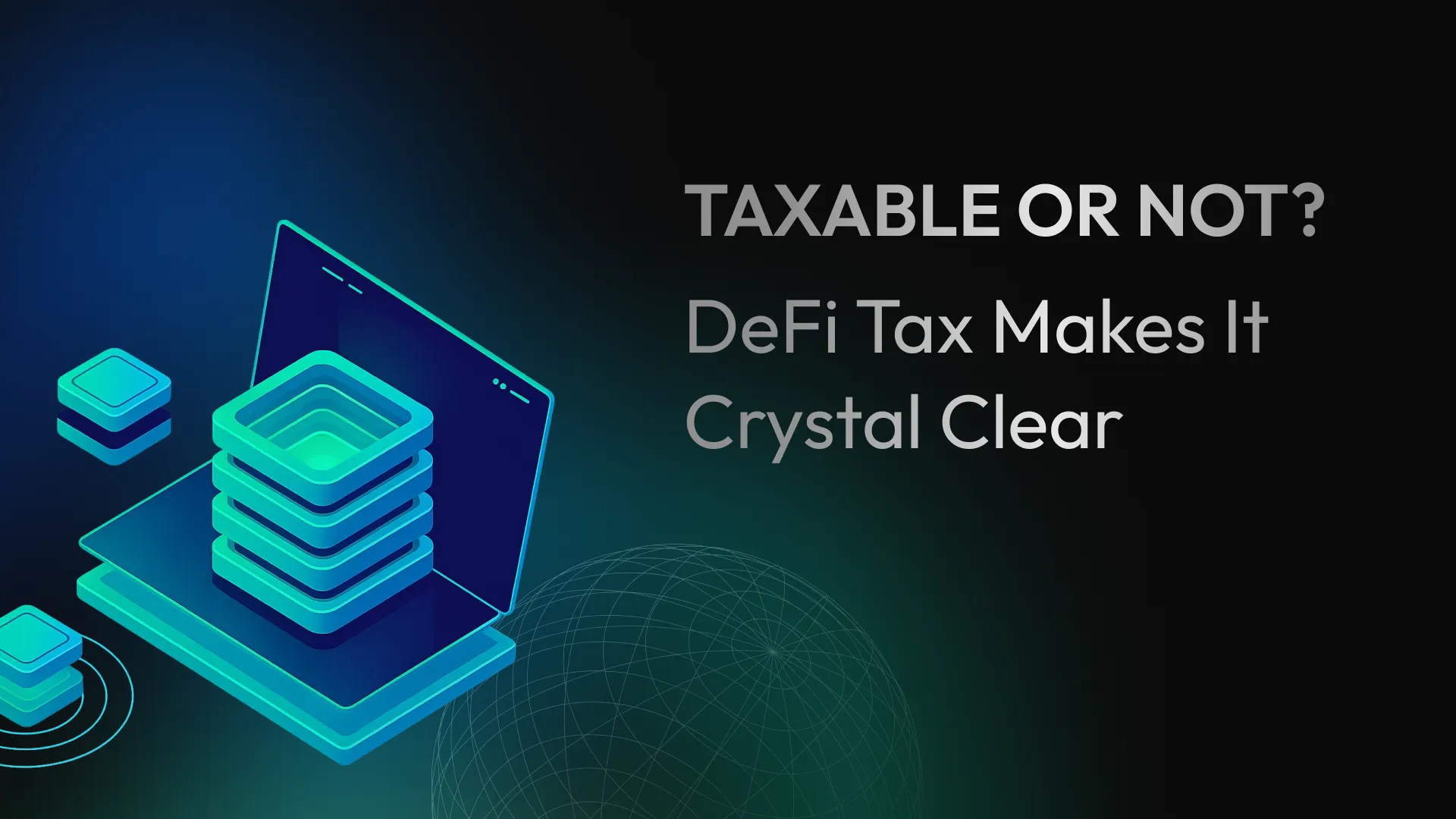
Crypto taxes can get confusing fast. Some transactions are taxed like regular income, while others are treated as capital gains. And while losses can help lower your tax bill, not every loss qualifies for a deduction. With so many types of transactions—from staking and trading to airdrops, NFTs, and bridging, it’s easy to miss what counts as taxable and what doesn’t.
Unfortunately, the IRS doesn’t accept “I didn’t know” as an excuse. That’s why it’s critical to understand the difference between taxable and non-taxable events before you file. Whether you’re a long-term holder, an active trader, or deep into DeFi, this guide will help you avoid costly mistakes and report your gains and losses with confidence. And if you want to automate the process and stay compliant every step of the way, DeFi Tax has your back.
Let’s break it down.
When crypto increases in value and you realize that gain through a sale, swap, or use, the IRS wants a cut. These are considered capital gains or income, depending on the activity. Taxable events include:
How it's taxed:

Capital Gains: Applies when you dispose of crypto you purchased

Income: Applies to rewards, airdrops, bonuses, and earned tokens
Holding Period Matters: If you sell within a year, gains are taxed at higher short-term rates. You may qualify for long-term capital gains if you have held for more than a year.
Some crypto activities don’t trigger a tax bill, but that doesn’t mean you can ignore them.
Common non-taxable events include:
Why track them anyway? Because your cost basis starts with these transactions. Skipping them can lead to incorrect gain/loss reporting later on.
Yes, but only under the right conditions.
If you sold or swapped crypto at a lower price than you paid, you may be eligible to harvest that loss to offset capital gains. If your losses exceed gains, you can deduct up to $3,000 per year against ordinary income, and carry forward the rest.
Smart Tip: Tax-loss harvesting is legal and powerful, but must be planned. Selling and rebuying the same asset too quickly could be impacted by wash sale rules in the near future.
Manually tracking your crypto gains and losses is risky and exhausting. DeFi Tax automates every step to ensure nothing is misclassified or missed.
Here’s how we help:
With DeFi Tax, your crypto taxes aren’t just filed, they’re defensible.
Q1. Do I owe taxes if I only traded crypto and didn’t cash out to fiat?
Yes. Swapping one crypto for another (e.g., ETH to MATIC) is a taxable event. The IRS treats it as if you sold one asset and bought another, so any gain or loss must be reported.
Q2. Are gas fees tax-deductible?
In many cases, yes. Gas fees paid during crypto purchases, transfers, or DeFi interactions can be added to your cost basis or deducted from proceeds, depending on the transaction type.
Q3. What if I lost crypto in a hack or scam?
Unfortunately, the IRS doesn’t recognize all crypto losses as deductible. While theft or fraud may qualify under limited circumstances, losing access to private keys typically does not.
Q4. Can I gift crypto to someone to avoid taxes?
You can gift crypto up to the annual exclusion limit ($18,000 per person in 2025) without triggering gift tax. However, the recipient may owe taxes if they later sell it for a gain.
Q5. What happens if I don’t report my crypto gains?
Failure to report gains can result in penalties, interest charges, or even an audit. The IRS now receives data directly from exchanges and uses blockchain analytics, so underreporting is a major risk.
Understanding what counts as taxable income vs. non-taxable activity is the first step to avoiding penalties and maximizing your returns. DeFi Tax helps you file the right way, automatically and accurately.
Know exactly what the IRS expects. Use DeFi Tax for accurate crypto gains and loss reporting.